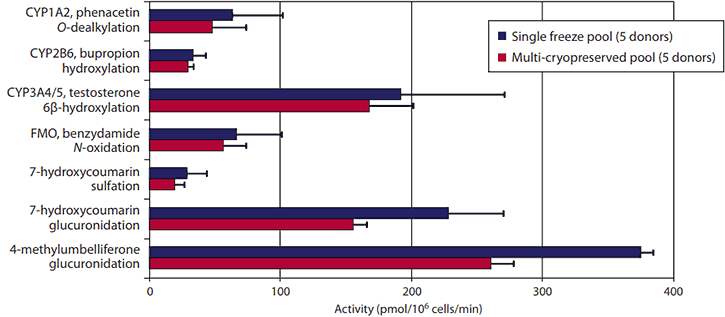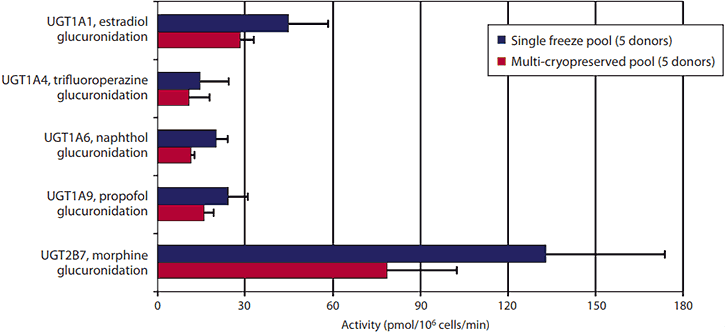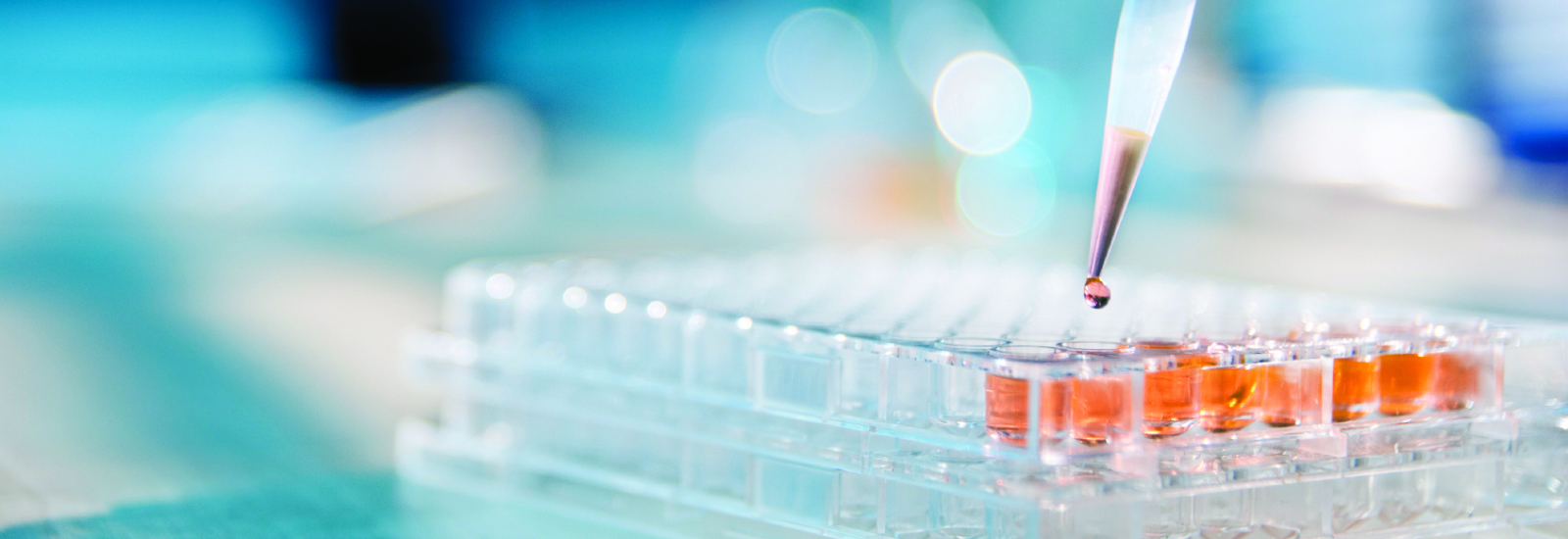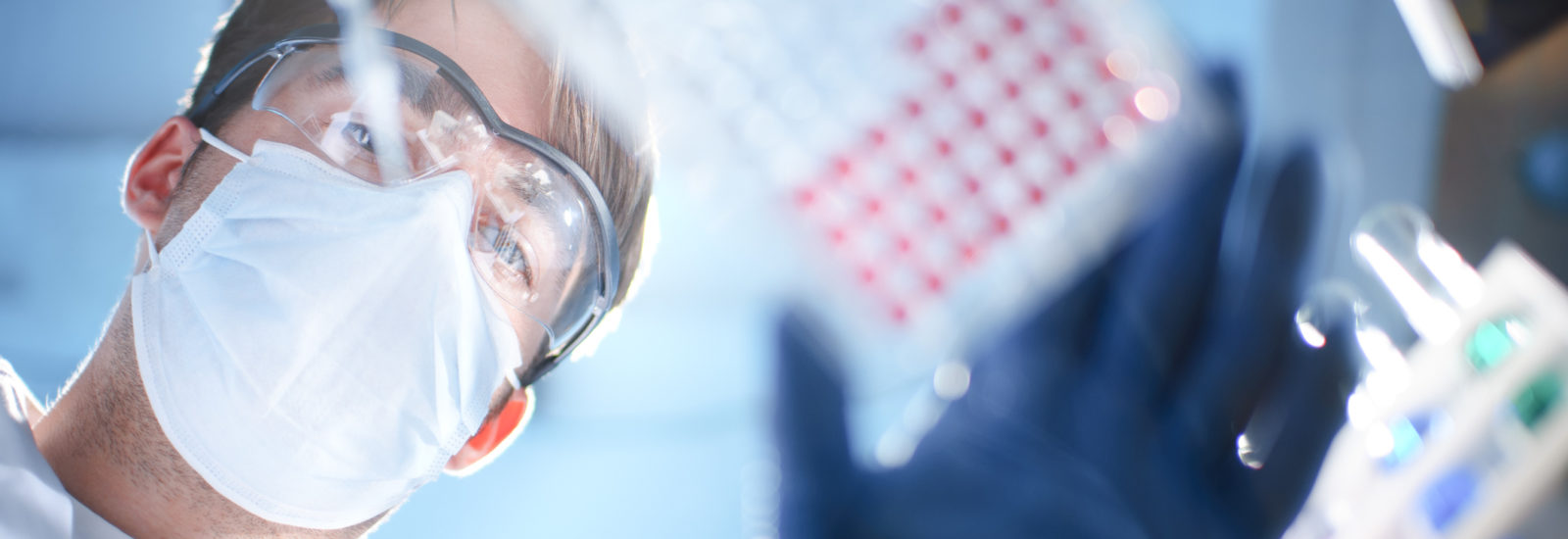

Maximize Metabolic Activities by Limiting Hepatocyte Cryoinjury
- Drug Metabolism
- May 1, 2018
- Michael Millhollen, Dr. Chris Bohl
Cryopreservation and thawing of primary hepatocytes causes inherent damage to the cells. Traditional pooling methods require cells to undergo two separate cryopreservation and thaw steps, leading to increased cryoinjury and decreased metabolic activity.
CryostaX® hepatocytes use a patented process that allows scientists to create primary hepatocyte pools from up to 20 donors with only a single cryopreservation. Individual donor hepatocytes are cryopreserved as CryostaX® pellets, which can then be physically combined and packaged into a single vial without having to thaw and re-cryopreserve a second time. This limits the cryoinjury to each donor, maximizing the metabolic activity of the pool, and removes the extra cost usually associated with custom pooling.
Data indicates that minimizing cryoinjury leads to a modest conservation of CYP450 and SULT activities, but has significant advantages when examining UGT activity. When choosing suspension or attaching hepatocytes for your experiments, why choose pools with increased cryoinjury?
Learn more about our patented CryostaX® technology
View available cryopreserved hepatocytes
Contact us with any questions or requests
Fig. 1 – The effects of multiple freezes on the activity of phase-1 and phase-2 enzymes in human hepatocytes: Average of four donors frozen and refrozen individually

Fig. 2 – The effects of multiple freezes on the activity of phase-1 and phase-2 enzymes in human hepatocytes (pools contain cells from the same donors)

Fig. 3 – The effects of multiple freezes on the activity of UDP-glucuronosyl transferases in human hepatocytes (pools contain cells from the same donors)

CryostaX® Custom Pool Request
About the Authors
Related Posts
ADME and Drug-Drug Interactions for the Toxicologist
Cypex Adds Recombinant UGTs
Subscribe to our Newsletter
Stay up to date with our news, events and research

Do you have a question or a request for upcoming blog content?
We love to get your feedback
